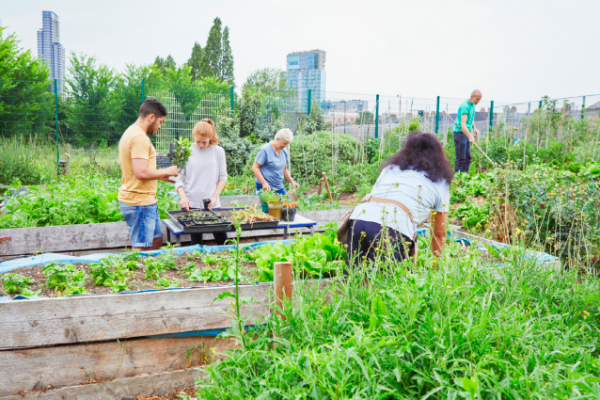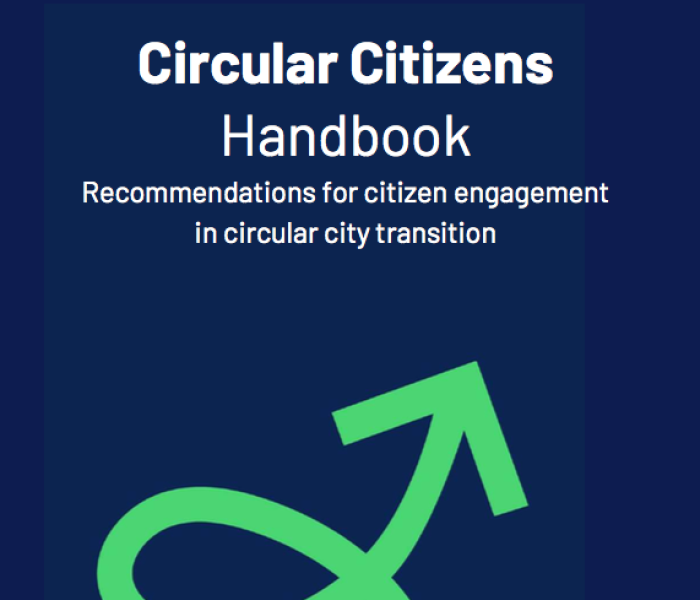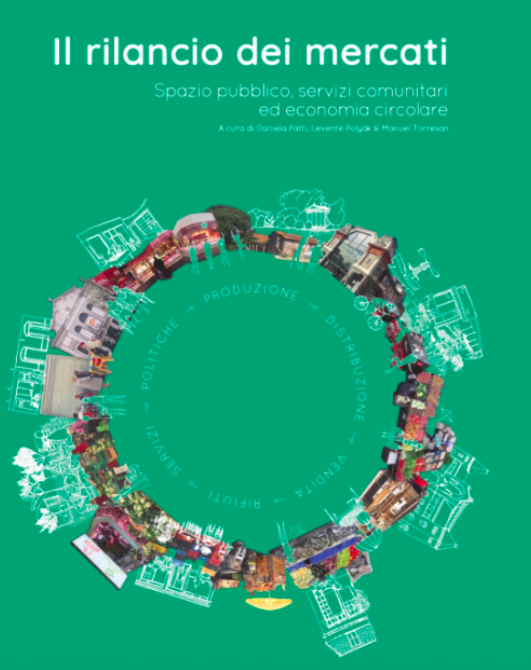Subscribe to our joint NEWSLETTER for
EUTROPIAN &
COOPERATIVE CITY MAGAZINE

Creating sustainable urban food systems is a pressing issue: presently, over half of the global population resides in urban environments, with forecasts indicating that cities will account for 80% of food consumption.
A holistic approach is needed which comprises various dimensions of food, including education, environment, culture, economy, health, social justice, planning, and tourism. The overarching objective is to identify collective and mutually beneficial solutions to urban challenges, ranging from poverty, health, land use, energy, education, and waste management, among others.
Food policies of cities need to effectively address these current challenges by integrating diverse actors and initiatives into a comprehensive strategy with strong citizen participation to develop long-lasting and effective actions. There are successful cases of citizen participation in the renewal of markets. A growing number of market halls are now playing a role in the circular economy, in creating new community spaces, in creating new jobs, or in linking to short food chains.
While global chains have dominated food production and distribution for decades, an increasing number of local communities and institutions have begun developing their short chain distribution networks between cities and their agricultural hinterlands. Locally sourced food systems play a key role in the creation of resilient, healthy and inclusive cities.


The REFLOW Project aims to develop circular and regenerative cities through enabling active citizen involvement and systemic change to re-think the current approach to material flows in cities. Together with the Municipality of Milan, Eutropian was responsible for the fulfillment of Citizen Engagement and Capacity Building Strategies of the project. The pilot city of Milan focused on supporting the transition towards a circular agri-food system by connecting and adapting the current food system to how modern citizens consume and live today. The Milan Pilot aims at supporting the city’s vision on circular food by providing sustainable solutions at the local market level. The pilot will foster and test sustainable food logistics, develop market laboratories to disseminate circular practices, track the origin and quality of agricultural products, analyze the interrelations between rural and urban communities.
The Just transition report commissioned by C40 and co-authored by Eutropian provides a key resource for European cities to improve their understanding of their national contexts and key plans, policies and projects relating to just transition. The report highlights the opportunities that cities can leverage and strategies that may be effective in shaping a stronger collective voice in pursuit of just transition in Europe.
The Circular Citizens handbook for citizen engagement in circular city transition aims to give a more substantial understanding on citizens’ role in the implementation of circular solutions. Based on six pilot cities of the REFLOW EU Project, we propose six key recommendations targeting policy-makers and municipalities for citizens’ participation in the circular economy transition. The handbook was produced by Eutropian and the City of Milan.
The paper Food markets’ network as an infrastructure for local development in Rome investigates local food markets in Rome, looking into their role in supporting local food distribution, offering local services in public assets, creating employment and ultimately affecting the neighbourhoods they are located in.
Our book Il Rilancio dei Mercati: spazio pubblico, servizi comunitari ed economia circolare examins the possibility of markets regaining a central role within public food policy.
On top of publishing these books and reports, our online magazine Cooperative City has dozens of articles on food systems and markets.

Cooperative City streamed a full episode in our online series Cooperative City in Quarantine during the Covid-19 lockdown on the fragility of urban food systems. Experts on food production and distributions systems from different European cities explored the challenges we faced during COVID-19. We also spoke to Amedeo Valente, President of the Trieste Market in Rome who shared with us the initiatives being taken to support their community during the initial crisis.
In the video Stará Tržnica – New purpose for a public building we delve into this historic market building in the centre of Bratislava that closed down after years of unsuccessful attempts by the municipality to keep the it alive. Years later, the market hall reopened with a redevelopment plan by the NGO Alianca, becoming one of the city’s most important event venues.
Interazioni Urbane – Reactivating the market tells the story of the deterioration and gradual abandonment of Rome’s Primavalle market, together with Banco e sto, and how they have brought together market vendors, local residents and municipal officers to help turning the market into a community hub.
| Cookie | Duration | Description |
|---|---|---|
| cookielawinfo-checkbox-analytics | 11 months | This cookie is set by GDPR Cookie Consent plugin. The cookie is used to store the user consent for the cookies in the category "Analytics". |
| cookielawinfo-checkbox-functional | 11 months | The cookie is set by GDPR cookie consent to record the user consent for the cookies in the category "Functional". |
| cookielawinfo-checkbox-necessary | 11 months | This cookie is set by GDPR Cookie Consent plugin. The cookies is used to store the user consent for the cookies in the category "Necessary". |
| cookielawinfo-checkbox-others | 11 months | This cookie is set by GDPR Cookie Consent plugin. The cookie is used to store the user consent for the cookies in the category "Other. |
| cookielawinfo-checkbox-performance | 11 months | This cookie is set by GDPR Cookie Consent plugin. The cookie is used to store the user consent for the cookies in the category "Performance". |
| viewed_cookie_policy | 11 months | The cookie is set by the GDPR Cookie Consent plugin and is used to store whether or not user has consented to the use of cookies. It does not store any personal data. |
